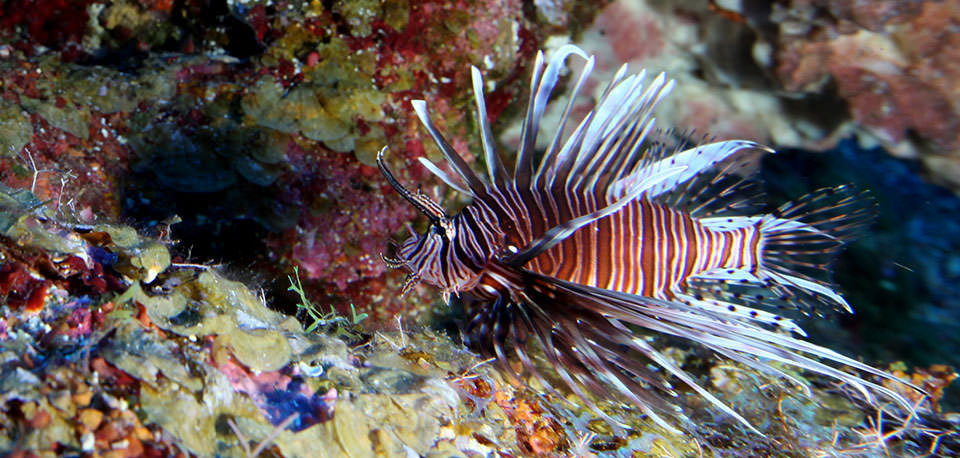Hey, it’s another destructive invasive species, aided and abetted by climate change.
Scientists battling coral reef deaths caused by warming ocean waters 100 miles off the coast of Galveston might now have another climate change problem to fight in coming decades: a proliferation of zebra-striped lionfish.
Lionfish — brought to the U.S. from their Indo-Pacific home to stock aquariums and later dumped by owners unable to care for the constantly hungry vertebrate — have no known North American predators to stop their spread. As a result, they’ve been decimating reef populations from New York to Florida since the 1980s, arriving at the Gulf of Mexico’s Flower Garden Banks National Marine Sanctuary in 2011.
And a recent study published in the Wilderness & Environmental Medicine journal suggests that venomous creatures like lionfish will become more prevalent as the oceans warm.
”They are the cockroaches of the sea,” said Michelle Johnston, a sanctuary research biologist. “They reproduce every four days and every four days they can release up to 50,000 eggs. Plus, nothing really eats them, they have venomous spines and the native fish are terrified of them.”
[…]
Between 2011 and 2017, researchers have recorded nearly 3,500 lionfish in the [federal Stetson Bank] sanctuary, NOAA stated, though experts believe that number is low.
And just as the lionfish did in household aquariums, they started eating everything in sight. A single lionfish can eat up to 5,000 fish per year, Johnston said.
In the Indo-Pacific, lionfish predators include sharks, grouper, frogfish, large eels and scorpionfish, according to Lionfish Hunters, a group that promotes the removal of lionfish from the Western Atlantic Ocean, Caribbean Sea and Gulf.
But fish native to the Flower Garden Banks don’t know lionfish are predators, Johnston said, which makes the venomous fish’s food gathering that much easier.
“The lionfish are virtually unchecked” in Flower Gardens, Johnston said. “The ones we’ve collected are extremely large, they’re obese, and some of them have fatty liver disease. They’re eating themselves into oblivion.”
Here’s the NOAA page on lionfish. The Chron article is long and detailed, and one we’ve heard before for other species. Scientists are looking for solutions to control the population so as to minimize the damage these invaders cause. (Turning them into human food is another idea.) In the meantime, if you or someone you know owns an aquarium, don’t add a lionfish to your collection, and if you do then for crying out loud don’t just dump it somewhere if you decide you’re done with it. Let’s at least not add to the problem.

